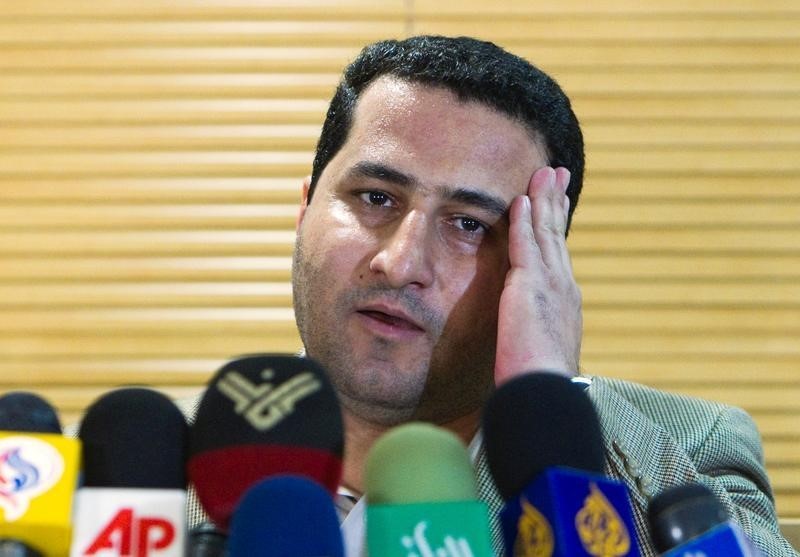By Bozorgmehr Sharafedin and Yeganeh Torbati
DUBAI/WASHINGTON (Reuters) - Iranian security forces may have pressured nuclear scientist Shahram Amiri, hanged last week for spying for the United States, to admit to crimes he did not commit, his mother said in an interview this week.
Amiri leapt to the global spotlight in 2010 when he claimed first that U.S. agents had abducted him and then that he was in the United States of his own free will.
The same year, he returned to Iran where he was welcomed as a hero but then detained and tried on charges that he divulged nuclear secrets.
"When I was saying goodbye to him before his execution, he told me not to be sad as he had done nothing wrong," Marzieh Amiri told Reuters in a telephone interview.
"He asked me to tell everyone that he was innocent. He was saying his conscience was clear," she said.
Her son's closed-door trial was unfair and he was not properly represented, she said. She did not know the full name of the lawyer, who as a result could not be reached for comment.
"They should have held a public trial," she said. "I am not angry with the government or the Supreme Leader (of Iran, Ayatollah Ali Khamenei). I am angry with extremist security forces who were on his case, trying to prove he was a spy and who maybe forced him to confess to things he hadn't done."
Iranian judiciary officials could not be reached for comment. Gholamhossein Mohseni Ejei, spokesman for Iran's judiciary, told reporters Amiri received a fair trial and the case followed standard judicial procedure.
"He ... had contacted Iran's number one enemy, America, and had given our most secret and vital information to them," Mohseni Ejei said on Sunday, according to the state broadcaster.
"I AM AN IRANIAN"
In June 2010, Iranian state television showed Amiri, then 32, saying in a video he was in Arizona after U.S. and Saudi intelligence forces kidnapped him a year earlier during a religious pilgrimage abroad.
In a second video soon afterwards, Amiri said he was in the United States voluntarily and wanted to dispel "rumours" that had been spread about him.
"I am an Iranian, and I have taken no step against my homeland," he said.
As a young man with a talent for electronics in the Iranian city of Kermanshah, Amiri would tote his toolbox to friends' houses and fix their broken appliances, his mother said.
He won a coveted scholarship from the defence ministry to further his studies and eventually became a researcher in radiation safety at the defence ministry-affiliated Malek Ashtar University of Technology, visiting sites associated with Iran's nuclear program.
According to a U.S. official involved in the case, the Central Intelligence Agency recruited Amiri in Iran and helped extract him using the pilgrimage.
But U.S. officials had doubts about the depth of Amiri's knowledge and access to the most sensitive information.
Amiri was questioned, given a new identity and a home in Arizona, and paid around $5 million (4 million pounds) , the officials said.
However he began telling his handlers he missed his young son and wanted to return to Iran, though they warned he likely would face imprisonment or worse and might never see his son.
Arriving in Tehran in July 2010, he was greeted by his son, reporters and Iran's deputy foreign minister. Someone placed a wreath around his neck and he flashed a "V" for victory while clutching his son.
CLEAR CONSCIENCE
Marzieh Amiri said her son was free on his return and even took a vacation in Iran with his family. "But one day they suddenly arrested him ... When we followed up, (the security forces) said, 'It's for his own protection. He is our guest'."
He was held in isolation in Tehran, his mother said. His wife filed for divorce, and he became nervous and suffered from high blood pressure
"His loneliness was killing him," she said, adding she visited him once or twice a month. "He told me he prefers to die as he could not tolerate the isolation any more."

Last week, officials brought his corpse to Kermanshah. Rope marks on his neck indicated he had been hanged, his mother said.